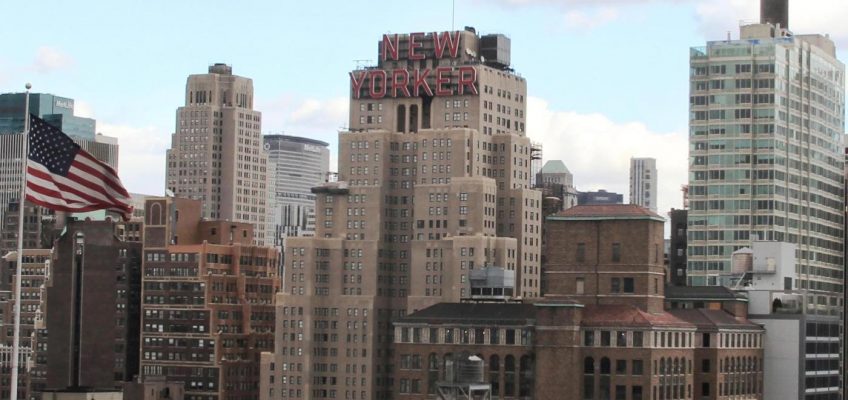By JAKE OFFENHARTZ
NEW YORK (AP) — A New York City man who attempted to claim ownership of the New Yorker Hotel has pleaded guilty to fraud, ending a lengthy legal saga involving an obscure tenant law that allowed the man to live rent-free for years in the storied Manhattan hotel.
Related Articles
Guide company leading group caught in deadly avalanche warned of snow conditions days before incident
Online seller eBay to buy secondhand fashion marketplace Depop from Etsy for $1.2B in cash
NIH’s Bhattacharya will also run the CDC while Trump administration looks for a permanent director
Transportation Department says more than 550 driving schools should close over safety failures
Fed minutes: Lower inflation needed before many officials will support rate cuts
Mickey Barreto entered the plea on Wednesday, admitting that he had forged property records in an effort to take ownership over the hotel. That effort was, at least on paper, partially successful.
In Barreto’s telling, he and his boyfriend paid $200 in 2018 to rent one of the more than 1,000 rooms in the towering, oft-photographed Art Deco hotel. Barreto then requested a lease, claiming his one night stay entitled him to protections under a city housing law that applies to single-room occupants of buildings constructed before 1969.
When the hotel rebuffed him, he took his case to housing court. After the hotel failed to send a lawyer to a key hearing, Barreto was awarded “possession” of the room.
But Manhattan prosecutors said Barreto then went a step further, defrauding the state by uploading a fake deed to a city website that purported to transfer ownership of the entire building to himself.
The property is currently owned by the Holy Spirit Association for the Unification of World Christianity, which was founded in South Korea by a self-proclaimed messiah, the late Rev. Sun Myung Moon. The church did not respond to an e-mailed inquiry.
Barreto then attempted to collect rent from a hotel tenant and demanded the hotel’s bank transfer its accounts to him, according to prosecutors.
He was eventually evicted from the premises in 2024 and charged with multiple counts of felony fraud. He was later found unfit to stand trial and ordered to undergo psychiatric treatment.
As part of the plea, Barreto was sentenced to a six-month prison sentence that he has already served, along with five years of probation, according to a spokesperson for the Manhattan district attorney.
Brian Hutchinson, an attorney for Barreto, didn’t immediately respond to a phone message seeking comment.
Barreto previously told the AP that the judge who granted him “possession” of his room indirectly gave him the entire building because it had never been subdivided.
“I never intended to commit any fraud. I don’t believe I ever committed any fraud,” Barreto said at the time. “And I never made a penny out of this.”




